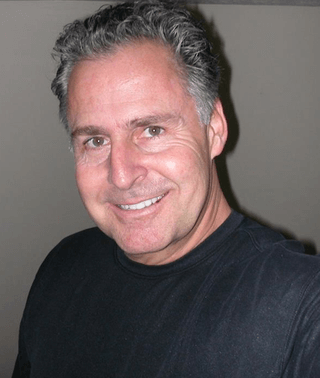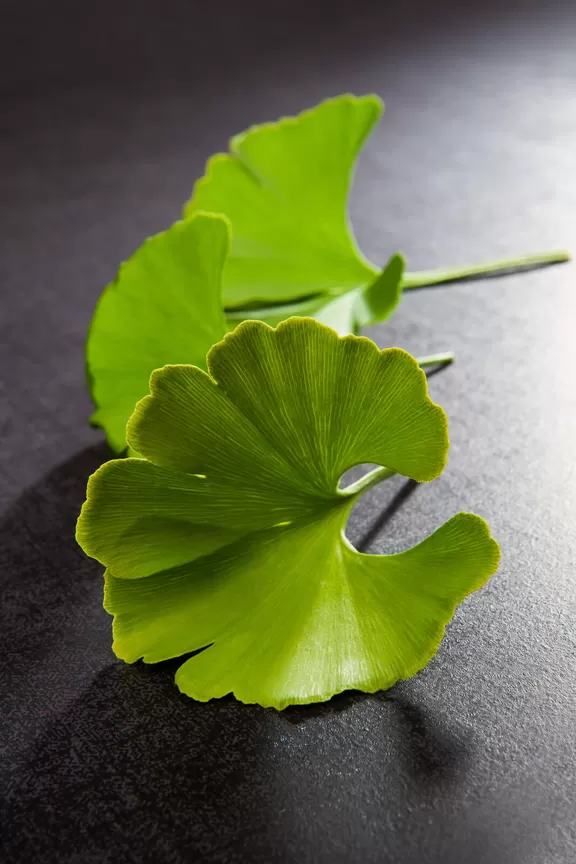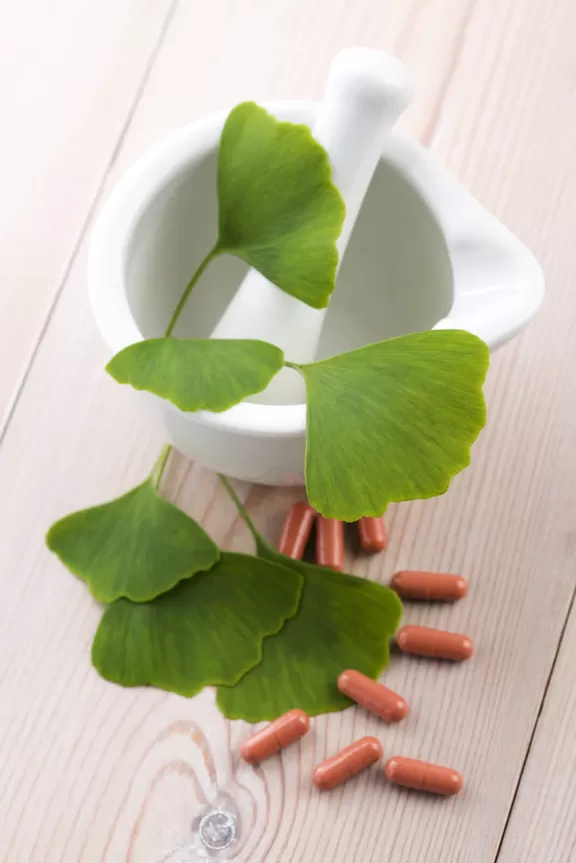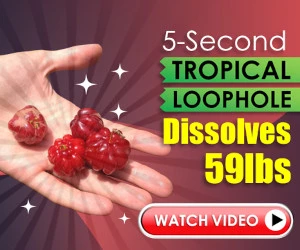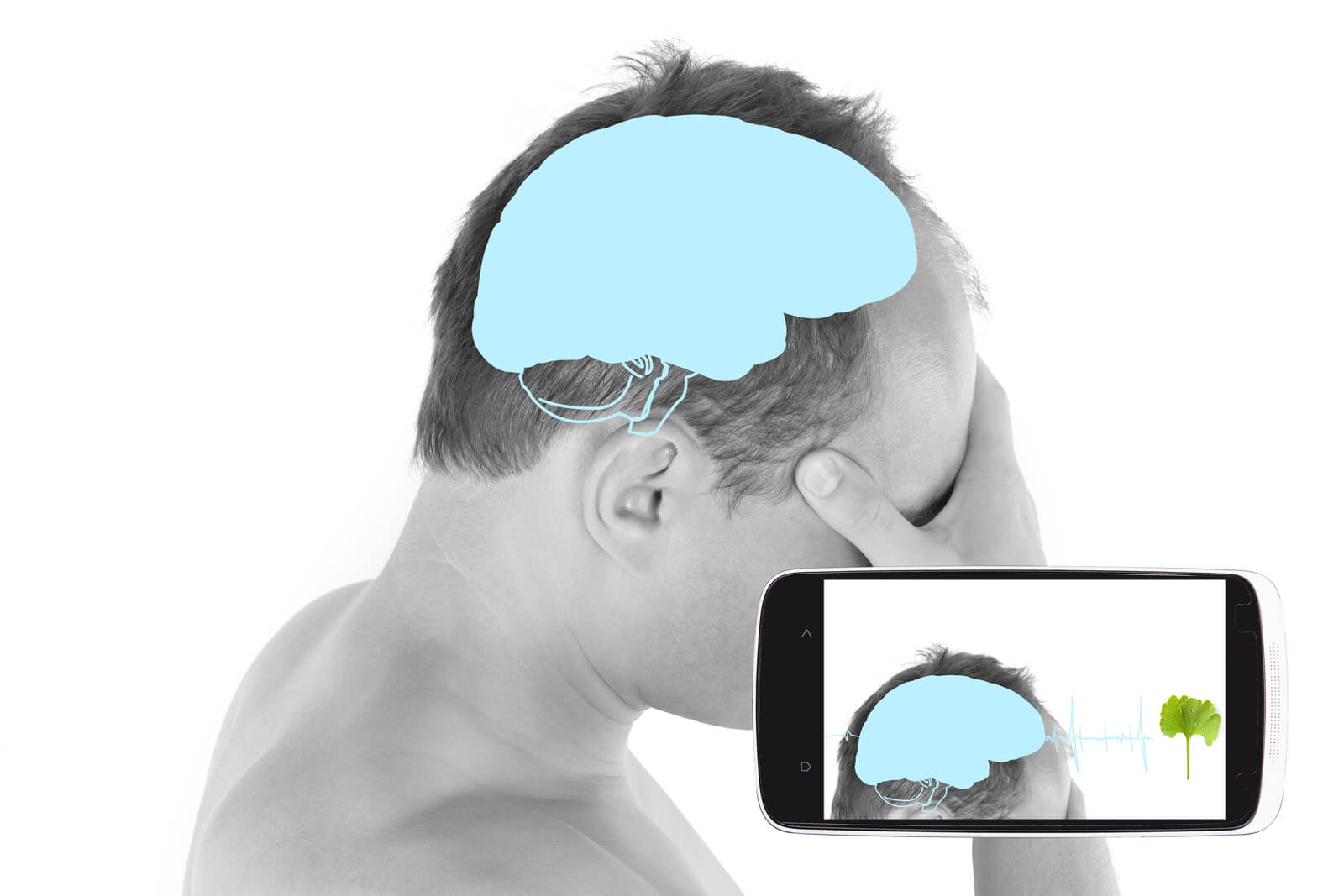
Is Ginkgo biloba (baiguo, yinhsing) a natural memory nootropic? Can it enhance memory and/or cognitive function? The research, which seems to have been conducted mainly since the 1990’s, has been conflicting on this. Some studies find no benefits from taking ginkgo, while other studies demonstrate definite benefits.
Possibly one factor that needs to be more stringently accounted for is adherence to taking ginkgo. A 2008 study published in Neurology(source 4) failed to draw a statistically significant correlation between ginkgo and cognitive benefits in the first analysis of the data. Yet, in this same study, when they adjusted their analysis to factor in participants accurately taking the dose of ginkgo, they found participants taking ginkgo extract had about a 70% decrease in risk for developing dementia.
In support of the idea that ginkgo is a good choice for protecting the brain and possibly conferring some cognitive benefit is the late Dr. James A. Duke. Dr. Duke’s credentials and history can be seen on the U.S. National Agricultural Library website. Dr. Duke also put together an impressive phytochemical (plant chemical) database which is hosted by the USDA (it can be found here).
Dr. Duke, in his book The Green Pharmacy Herbal Handbook,(source 12) has this to say about ginkgo:
Hundreds of clinical and animal experiments, most of them conducted in Europe, have established the therapeutic value of ginkgo’s phytochemicals. The bilobalides, ginkgolides, flavonoids, and other substances unique to the tree restore better blood flow to all parts of the body but particularly to the brain, allowing improved use of oxygen. They also stabilize the structure of brain and nerve cells and protect them from oxidative attacks by free radicals. The net result is that you remain more cerebrally supple, able to forestall the memory loss, lack of mental dexterity, and depressive tendencies that so often accompany aging.
The Green Pharmacy Herbal Handbook (Ginkgo section)
There are many studies that support the idea that ginkgo helps with cognitive function, memory loss, and dementia. And, there are many studies that do not show these benefits. Thus the official findings from research are conflicting.
Ginkgo biloba is probably worth testing out, one study in support of ginkgo’s mental benefits implies taking this herb a few hours before a test can provide some cognitive benefits. This was demonstrated by a study of young adults who took a single dose of gingko. Yet, long term use appears to negate this effect—possibly due to building up a tolerance.
Again, because research is conflicting it seems that giving the herb a try is the best way to come to a more sure conclusion about its ability to help the brain. This author tends to feel that because (as research we will discuss demonstrates) ginkgo allows the brain to get more blood and protects against free radicals it is a good choice for brain health.
Dr. John Herzog (MD)
Dr. John Herzog, a "survival surgeon" from Maine explains what home remedies work best in a crisis situation.
This may be important in the event you require first-aid or are in an emergency situation without easy access to a hospital. Dr. John Herzog has assembled a large collection of home remedies for such scenarios.

Ginkgo biloba for Memory Loss & Dementia

A 2008 study published in Neurology(source 4) may have demonstrated evidence that ginkgo can help ward off dementia. The study was designed to evaluate how well Ginkgo biloba extract would reduce the progression of cognitive impairment in normal elderly people aged 85 years and older. The study was a randomized, placebo-controlled, double-blind, 42-month pilot study with 118 participants. The participants were cognitively functional; not showing signs of dementia or memory loss; at the start of the study. The participants were given either ginkgo extract or a placebo (controls).
The participants’ memory in the study was evaluated using a 5 point scale known as the Clinical Dementia Scale. This scale of measurement is commonly used by medical professionals and researchers to determine memory impairment.
The study’s initial evaluation showed that 21 participants had progressed to an elevated Clinical Dementia Rating (CDR) during the 42 months of analysis. 14 of these participants were in the placebo group; and, 7 participants were in the ginkgo group. Statistical analysis of this finding showed a 57% reduction in the progression of dementia. Yet, this effect could not be considered statistically significant.
Yet, the study did another analysis of their data, one which focused on those who consistently took the ginkgo extract pills on a regular basis. This re-analysis of the data showed that those who adhered to taking the ginkgo extract had about a 70% decrease in risk for developing dementia. And, this difference was statistically significant.

Comprehensive Herbalist School
Dr. Patrick Jones, founder of the HomeGrown Herbalist School of Botanical Medicine has been a practicing veterinarian for over 25 years. He is also a clinical herbalist and traditional naturopath.
Kevin Harrington, Original Shark from ABC’s Shark Tank, stands behind Dr. Patrick Jones and HomeGrown Herbalist.
Learn More
Comprehensive Herbalist School
Dr. Patrick Jones, founder of the HomeGrown Herbalist School of Botanical Medicine has been a practicing veterinarian for over 25 years. He is also a clinical herbalist and traditional naturopath.
Kevin Harrington, Original Shark from ABC’s Shark Tank, stands behind Dr. Patrick Jones and HomeGrown Herbalist.Learn More
Another relevant study on this topic was published in 2016 in Frontiers in Aging Neuroscience.(source 5) This review was done of prior review studies of Ginkgo biloba for mild cognitive impairment, Alzheimer’s disease, mixed dementia, and vascular dementia. 10 systematic reviews were found that were included in this "review of reviews."
This review found that taking Ginkgo biloba extract was able to improve cognition, daily activities, and neuropsychiatric symptoms. This improvement was dose-dependent; i.e., as the amount of ginkgo extract taken went up, more of these positive effects were seen. The review found that the effectiveness of ginkgo extract was only convincingly demonstrated at a high daily dose of 240 mg.
Concerning the adverse effects of taking ginkgo; the review found overall adverse effects and serious negative events were the same as those who took a placebo.
This study combining reviews concluded by stating: "In conclusion, there is clear evidence to support the efficacy of [Ginkgo biloba extracts] for [mild cognitive impairment] and dementia, whereas the question on efficacy to prevent cognitive decline is still open. In addition, [Ginkgo biloba extracts] seem to be generally safe."
A 2021 study, published in CNS Neuroscience & Therapeutics,(source 6) presented an expert consensus on the controversial topic of ginkgo extract and its efficacy in treating cognitive impairment and dementia. The consensus opinion was from the Asian Clinical Expert group on Neurocognitive Disorders (ASCEND) regarding the role of EGb 761® in mild cognitive impairment.
A note about EGb 761®; more modern research on ginkgo extract appears to frequently use a proprietary extract of the herb known as EGb 761®. EGb 761® has been increasingly used since 2001 for the treatment of cognitive disorders and alzheimer’s disease with or without cerebrovascular disease.(source 6)
EGb 761® is a dry extract from Ginkgo biloba leaves with an extract ratio ranging from 35:1 to 67:1. The extraction solvent is acetone. The extract is made to have 22% to 27% ginkgo flavonoids (calculated as ginkgo flavone glycosides) and 5% to 7% terpene lactones. It also contains less than 5 ppm ginkgolic acids.(source 7)
The ASCEND group’s expert conclusion was that EGb 761® is suggested to be clinically appropriate to incorporate this treatment as part of the multidomain treatment for mild cognitive impairment.
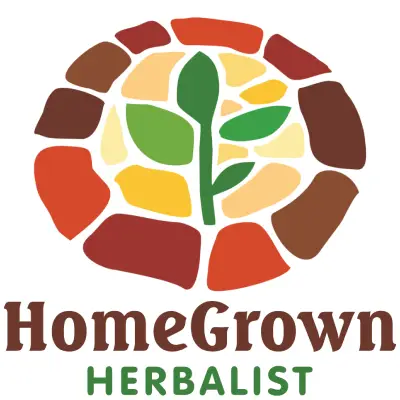
HomeGrown Herbalist Herb Shoppe
Owner of HomeGrown Herbalist Dr. Patrick Jones is a practicing veterinarian, Clinical Herbalist, and traditional naturopath. He owns and operates Fairview Animal Hospital in Buhl, ID.
Their herb shoppe provides herbs, essential oils, and tools. If you have some time, check it out!
Learn More
HomeGrown Herbalist Herb Shoppe
Owner of HomeGrown Herbalist Dr. Patrick Jones is a practicing veterinarian, Clinical Herbalist, and traditional naturopath. He owns and operates Fairview Animal Hospital in Buhl, ID.
Their herb shoppe provides herbs, essential oils, and tools. If you have some time, check it out!Learn More
This expert consensus cited several studies which demonstrated the following results of taking Ginkgo biloba extract (EGb 761®):
For healthy volunteers and individuals with subjective cognitive impairment:
- Improved cognitive flexibility in subjective cognitive impairment.
- Improved quantity of recall.
- Improved delayed free recall, delayed recognition, and Faces II memory scale.
For individuals with mild cognitive impairment:
- Improved Neuropsychiatric Inventory composite score (NPI; a method commonly used in dementia studies to express changes in psychiatric symptoms).
- Improved cognitive performance.
- Improved anxiety.
- Improved visual and verbal memory, free recall, and recognition.
- Improved attention and concentration.
- Improved delayed free recall, delayed recognition, and Faces II memory scale.
For the prevention of dementia:
- Marginally significant dementia prevention in patients with vascular involvement.
- Post-hoc analysis showed a late effect: significantly lower risk of conversion to dementia in patients taking EGb 761® for 5 or more years.
- Cerebral vaso-therapeutics (such as EGb 761®) showed a preventative effect with 2 or more years of treatment.
- EGb 761® protected against cognitive decline.
Conflicting Results from Studies not Supporting Cognitive Improvement
Despite all the positive studies we have covered regarding ginkgo and memory, there are many studies that did not show any results for ginkgo helping with cognitive impairment and memory. Yet, with all the positive evidence for ginkgo, one does wonder if the studies that failed to show results were due to people not regularly taking ginkgo.
Similar to the aforementioned 2008 Neurology(source 4) study; where when they adjusted their analysis for actually taking the ginkgo, results were seen. This is one variable that certainly deserves investigation.

Comprehensive Herbalist School
Dr. Patrick Jones, founder of the HomeGrown Herbalist School of Botanical Medicine has been a practicing veterinarian for over 25 years. He is also a clinical herbalist and traditional naturopath.
Kevin Harrington, Original Shark from ABC’s Shark Tank, stands behind Dr. Patrick Jones and HomeGrown Herbalist.
Learn More
Comprehensive Herbalist School
Dr. Patrick Jones, founder of the HomeGrown Herbalist School of Botanical Medicine has been a practicing veterinarian for over 25 years. He is also a clinical herbalist and traditional naturopath.
Kevin Harrington, Original Shark from ABC’s Shark Tank, stands behind Dr. Patrick Jones and HomeGrown Herbalist.Learn More
The U.S. National Library of Medicine’s StatPearls publication on Ginkgo biloba(source 8) does an excellent job of showing research with conflicting results concerning ginkgo and cognitive function. It is important to remember that treatment for existing dementia and the prevention of dementia are two different aspects analyzed by studies on ginkgo.
Concerning helping with existing dementia, StatPearls explains that study results have been contradictory. Some research has demonstrated help for existing dementia, and other studies have not been able to confirm these findings.
Concerning preventing dementia, StatPearls cites several studies which found ginkgo was not able to prevent dementia. The case may be, as the 2016 in Frontiers in Aging Neuroscience.(source 5) study concluded, "...the question on efficacy [of Ginkgo biloba extract] to prevent cognitive decline is still open."
Claire Goodall’s Amazing Guide
Clair Goodall is a bee-obsessed, natural medicine convert from Minnesota (USA). And, she does keep bees!
Clair has created 350+ page book documenting how to replace the toxic products and medications in your home with healthier, all-natural alternatives.

Does Ginkgo biloba Improve Memory?

It appears that the results of research on ginkgo for general memory improvement may be conflicting. Two studies we will look at support this theory and another, from the Journal of the American Medical Association (JAMA) does not.
There are probably a lot of anecdotal accounts from people who say this herb helps their memory. And, it is a very popular herb for this effect; kind of a natural nootropic! Yet, given the studies that do support the theory that ginkgo helps in memory; it can’t hurt to give it a try.
As research we will discuss shows, taking some gingko before a test might really confer some benefit to your mental abilities. But, the study that showed this effect suggested a tolerance might be built up to the memory enhancing effects of this herb! So, you might want to give it a try 4 hours before taking a test, and refrain from taking it regularly!
Research on ginkgo for Memory Enhancement
A 2002 study in JAMA(source 9) was done to determine if ginkgo could improve memory in adults older than 60 years. The study gave either Ginkoba, from Boehringer Ingelheim Pharmaceuticals, or placebo to these individuals. Ginkgo was given at a dose of 40 mg three times a day. This study was conducted over a 6 week period.
Of the 203 participants who completed the study, analysis revealed there were no significant differences in memory improvement for people taking Ginkoba. The study concluded: "These data suggest that when taken following the manufacturer’s instructions, ginkgo provides no measurable benefit in memory or related cognitive function to adults with healthy cognitive function."

HomeGrown Herbalist Herb Shoppe
Owner of HomeGrown Herbalist Dr. Patrick Jones is a practicing veterinarian, Clinical Herbalist, and traditional naturopath. He owns and operates Fairview Animal Hospital in Buhl, ID.
Their herb shoppe provides herbs, essential oils, and tools. If you have some time, check it out!
Learn More
HomeGrown Herbalist Herb Shoppe
Owner of HomeGrown Herbalist Dr. Patrick Jones is a practicing veterinarian, Clinical Herbalist, and traditional naturopath. He owns and operates Fairview Animal Hospital in Buhl, ID.
Their herb shoppe provides herbs, essential oils, and tools. If you have some time, check it out!Learn More
A 2011 study in Phytomedicine(source 10) did show ginkgo had memory enhancing properties. The objective of this study was to evaluate the effects of EGb 761® (a type of ginkgo extract) on memory and distinct memory functions.
The study used 188 healthy subjects aged 45 to 56 years. These subjects were either given EGb 761® or placebo for 6 weeks. The participants were given memory tests; one dealing with free recall (remembering a list of appointments) and another dealing with a less demanding standardized recognition test (remembering a driving route).
After 6 weeks of taking EGb 761®, treated subjects significantly improved in the quantity of recall (number of accurately recalled appointments). Yet, ginkgo supplementation did not affect the everyday, less demanding memory test of remembering a driving route.
The study stated that EGb 761® improved free recall of appointments that required high demands on self-initiated retrieval. This function is known to be sensitive to aging. No effects were seen in the less demanding memory task of recalling a driving route; this task did not require high demands on self-initiated retrieval. The study also stated that previous studies have shown specific patterns for the benefits of EGb 761® in demanding mental tasks.
A 2005 study in Psychopharmacology(source 11) looked at how taking ginkgo would influence memory. The study was conducted to evaluate the effects of single dose and long term use of ginkgo in young adults (between ages 18 and 26).
For the single dose experiment, 120 mg of ginkgo was taken; and, cognitive ability was tested 4 hours later. This single dose of ginkgo significantly improved performance on the sustained attention task and pattern recognition memory task. Yet, there were no effects seen on mood, mental flexibility, planning, or working memory.
For the long term experiment, participants were given 120 mg / day of gingko for a 6 week period. Participants were tested at the start of this period and after 6 weeks of treatment. The study found that after the 6 week treatment, no effects were seen on any of the cognitive tests or on mood.
The study concluded that, in accordance with other literature, acute (short term) use of ginkgo improved performance tests of memory and attention. Yet, no effects were seen after 6 weeks of treatment. These results suggested that a tolerance develops to this herb in healthy, young persons.
Ginkgo biloba & Cerebral Blood Flow
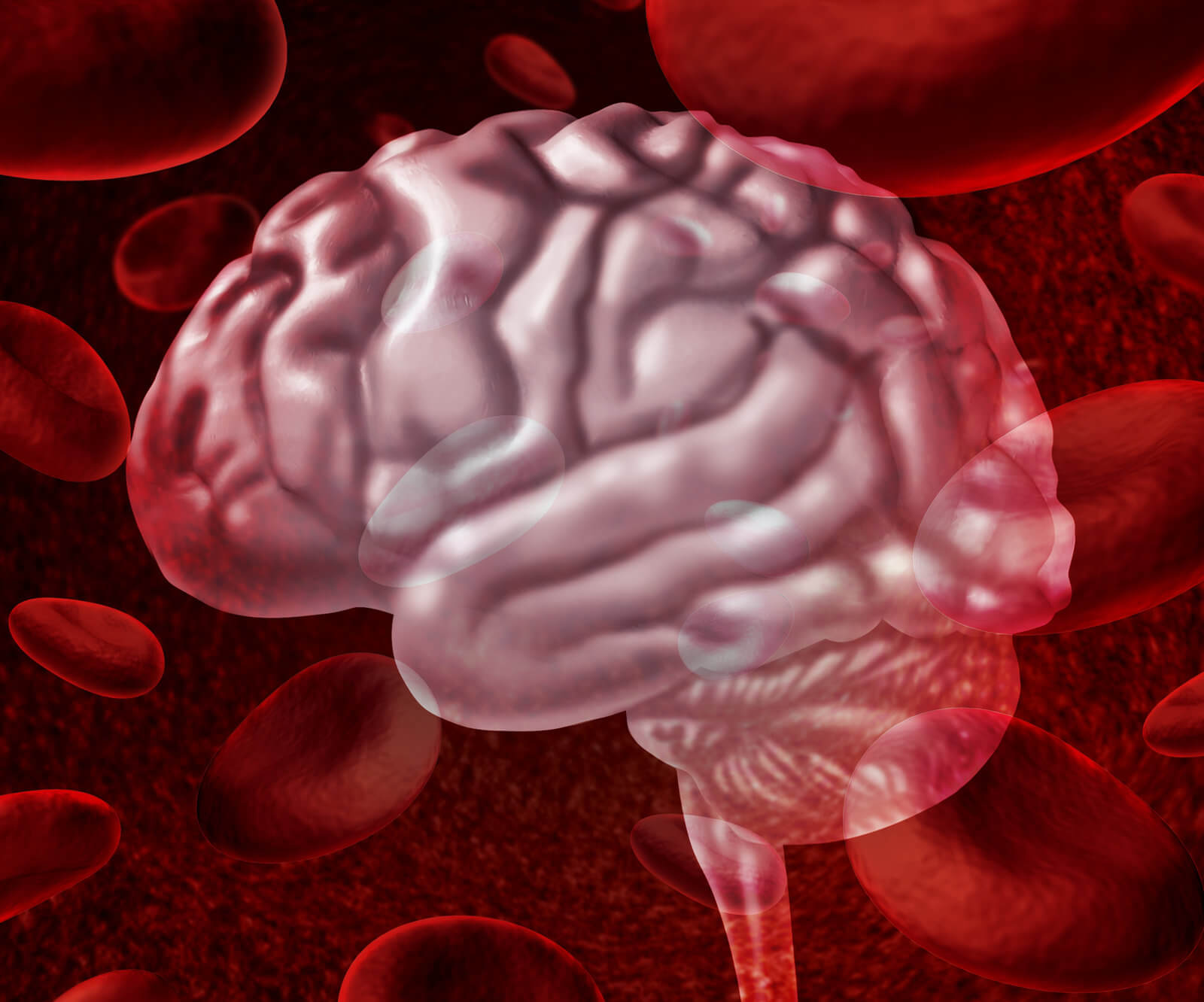
A 1986 study in Life Sciences(source 1) was done to examine the effects of Ginkgo biloba extract on local cerebral blood flow (LCBF), blood glucose levels, and cerebral glucose concentration and consumption in rats. Because the study found that the extract could cause vasodilation (dilatation of blood vessels) and enhance blood glucose levels, they examined these effects in detail.
The study found that the extract increased LCBF in 39 defined brain structures by 50% to 100%. The study also stated that ginkgo extract extended the survival of rats with hypoxia (deprivation of oxygen supply at the tissue level) "remarkably."
The ginkgo extract did not change local cerebral glucose utilization, but it did enhance the blood glucose level in a dose dependent fashion. The study results also suggest that ginkgo extract inhibited the uptake of glucose into brain tissue. Yet, the authors also stated that an inhibition of glucose uptake by the extract should be of "no significance" for brain metabolism under normal conditions; as glucose is supplied to the brain in surplus.
A 2011 study in Neuroradiology(source 2) was conducted on 9 healthy men between 51 and 71 years old. The men were analyzed before and after taking 60 mg of Ginkgo biloba extract twice a day for 4 weeks. The ginkgo extract used contained 14.4 mg (24%) ginkgo flavone glycosides per capsule.

Comprehensive Herbalist School
Dr. Patrick Jones, founder of the HomeGrown Herbalist School of Botanical Medicine has been a practicing veterinarian for over 25 years. He is also a clinical herbalist and traditional naturopath.
Kevin Harrington, Original Shark from ABC’s Shark Tank, stands behind Dr. Patrick Jones and HomeGrown Herbalist.
Learn More
Comprehensive Herbalist School
Dr. Patrick Jones, founder of the HomeGrown Herbalist School of Botanical Medicine has been a practicing veterinarian for over 25 years. He is also a clinical herbalist and traditional naturopath.
Kevin Harrington, Original Shark from ABC’s Shark Tank, stands behind Dr. Patrick Jones and HomeGrown Herbalist.Learn More
The study found that cerebral blood flow in individual lobar regions did not show any significant change after taking the extract. Yet, when looking at the changes in all brain regions combined, there was a significant increase of cerebral blood flow after taking the extract: 15% in white matter (4% standard deviation) and 13% in gray matter (7% standard deviation).
Ginkgo biloba’s Effects on Ischemia
Ischemia happens when a tissue or organ does not have adequate blood supply. A 2014 review study published in The American Journal of Chinese Medicine(source 3) performed a systematic review of studies that dealt with how ginkgo extract would affect brain ischemia in animals. A search was made of various databases for studies between 1980 and July 2013. 42 studies with 1,232 experimental animals were included in this review.
To blend all the various study outcomes into a more standard format, the review used a derived measurement referred to as "effect size." Effect size was defined as the improvement in outcome measures in treated animals relative to controls. Infarct (localized area of dead tissue resulting from lack of blood supply) size, neurologic score (such as sensory or motor skill evaluations), or a combined score are examples of outcome measures.
The study found that different species seemed to have different effect sizes; this suggested that different species will react differently to ginkgo extract. Secondly, the study found that when effect size was derived from combined scores (neurological score + infarct size) it was less than when effect size was derived from infarct size alone; and, infract size alone had the greatest effect size. The study stated that this indicated the combined measurement of effect size was more conservative; thus, more profound in regards to result interpretation.

HomeGrown Herbalist Herb Shoppe
Owner of HomeGrown Herbalist Dr. Patrick Jones is a practicing veterinarian, Clinical Herbalist, and traditional naturopath. He owns and operates Fairview Animal Hospital in Buhl, ID.
Their herb shoppe provides herbs, essential oils, and tools. If you have some time, check it out!
Learn More
HomeGrown Herbalist Herb Shoppe
Owner of HomeGrown Herbalist Dr. Patrick Jones is a practicing veterinarian, Clinical Herbalist, and traditional naturopath. He owns and operates Fairview Animal Hospital in Buhl, ID.
Their herb shoppe provides herbs, essential oils, and tools. If you have some time, check it out!Learn More
The study found that the differences in inducing loss of blood flow to the brain did not influence the outcomes. This supported the idea that ginkgo extract has a wide range of applications.
In general, ginkgo extract had a significant neuroprotective effect on brain ischemia. Although dosage amongst the studies differed (from 1 mg/kg to 300 mg/kg), the optimal dosage was 50 mg/kg. And, the effect size significantly decreased with dosages over 100 mg/kg; possibly due to an increased risk for intracerebral hemorrhage (bleeding into the brain tissue).
The study stated the most important ways ginkgo extract protects the brain during ischemia are increasing cerebral blood flow and reducing edema (fluid build up). Other protective effects of the extract include anti-inflammation, anti-oxidation, and anti-apoptosis (stopping programmed cell death).
This review of 42 studies concluded that "The results revealed that [Ginkgo biloba extract] improved the effect size by 34% compared to the control group… In conclusion, [Ginkgo biloba extract] exerts a significant protective effect on experimental focal cerebral ischemia."
Ginkgo biloba’s Side Effects
Ginkgo biloba leaf extract is very safe; and, for a healthy person, side effects will be mild if they even happen at all. Yet, if you take blood thinners, epilepsy medication, or monoamine oxidase inhibitors (MAOIs) for depression you should use caution with this herb. But, it is important to note that the seeds / nuts of the ginkgo tree can be toxic, even lethal, if enough of them are consumed.
Herbsey has an entire article detailing the side effects of ginkgo; additionally, the suggested daily dose, toxicity, and contraindications (situations where you don’t want to use a treatment) are discussed in this article. You can find the article here: Ginkgo biloba Side Effects.
About the Author
Geoff Kent is a natural medicine enthusiast who has been researching and writing about natural medicine since 2008. Geoff is primarily a web developer, but also researches and authors written and video content about natural health. Geoff has a bachelor’s degree in Management Information Systems from the University of Northern Iowa.
More on Geoff KentImportant Disclosures & Disclaimers
It is important to use the information you find on Herbsey.com in the right way. Also for legal reasons, these disclaimers and disclosures are necessary. For further information about each, feel free to click the link provided to the page on this website that provides more information.
Medical Disclaimer
The information on this website is not a prescription for anyone. This information is for informational or educational purposes only, and is not a substitute for professional medical advice or consultations with healthcare professionals.
Advertisement Disclosure
Some of the links provided on this article and website are affiliate links. If you purchase a product after clicking on these links, Herbsey.com will earn a commission. Herbsey.com promotes various products through advertisement and text links. For more information: Our Advertisements.


